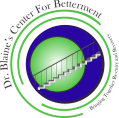Meeting participants where they are is our philosophy. We accomplish this by utilizing the principles of effective treatment so that we may assist our client’s in navigating the challenges we face with substance abuse disorders and developing effective coping skills.
What You Need to Know
Addiction is a complex but treatable disease that affects brain function and behavior, no single treatment is appropriate for everyone (i.e., varies by type of drug and patient characteristics).Treatment needs to be immediately available and readily accessible. Effective treatment attends to multiple needs of the individual, not just his or her drug abuse. Remaining in treatment for an adequate period is critical. NIDA states: “Research indicates that most addicted individuals need at least 3 months in treatment to significantly.
Behavioral therapies, including individual, family or group counseling—are the most used forms of drug abuse treatment. Advocate for medications when needed as an important element of treatment for many participants, especially when combined with counseling and other behavioral therapies. An individual’s treatment and services plan must be assessed continually and modified as necessary to ensure that it meets his or her changing needs. It is not uncommon for individuals with Substance Use Disorder to also have mental health disorders that are co-occurring. Drug use during treatment must be monitored continuously, as lapses during treatment do occur
Although many rehab centers or addiction treatment programs emphasize the fact that they utilize evidence-based treatment methods, what does this mean? According to the EBP Substance Abuse, for a treatment method to be “evidence-based”, it must have published research citing it as such or be recognized by reputable organizations as evidence-based.
Evidence-Based Practices
The method has been researched, scientifically studied, and the research has been published in a peer-reviewed journal, has provided the desired outcome(s) regarding the objectives of the addiction treatment and facility standards.
The method has been standardized so it can be repeated. Usually, this means instructions have been printed, detailing how the addiction treatment method should be used, with whom it should be used, the overall goals of the method, and any other materials needed to complete the method successfully.
The treatment method has been studied in more than one environment and has provided consistent and effective results. A measure could be (or has already been developed) to determine how well the implementation of the treatment method is adhering to the protocol that was originally researched.
Individual One-on-One Sessions
In general, individual therapy involves one-on-one work between a substance abuse counselor and client. It is the most popular form of therapy for many mental and behavioral conditions. The counselor and client can build trust and rapport, which supports the individual’s recovery process. Psychotherapy involves exploring one’s personality, including past experiences and present behaviors, and creating new processes to address conflicts, defense mechanisms, and maladaptive behaviors
Individual therapy for substance abuse focuses on ways to stop abusing drugs, assist in building skills to manage cravings or stress, and stick to the recovery plan. Behavioral treatment methods are the most evidence-based approaches to addiction counseling because they provide a framework to create steps to understanding our cravings and triggers that will enable one to manage these without relapsing.
Group Therapy Sessions
Group therapy is a specific form of counseling that is used to treat psychological disorders including substance abuse and addiction. It typically involves regular sessions where one or more therapists work with several individuals who are being treated for the same health issue. Many people benefit from the peer support in group therapy.
Allows people to share experiences with others who are dealing with similar issues.
Can consist of as little as 3–4 members or more than 12.
Generally held once or twice weekly for 1–2 hours.
Type of group is determined by the therapist and can include support groups, skills development, and psychoeducational.

